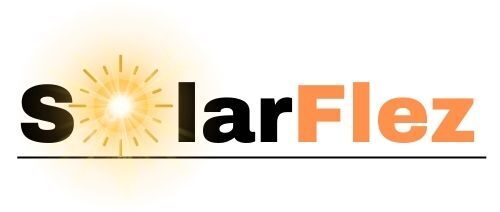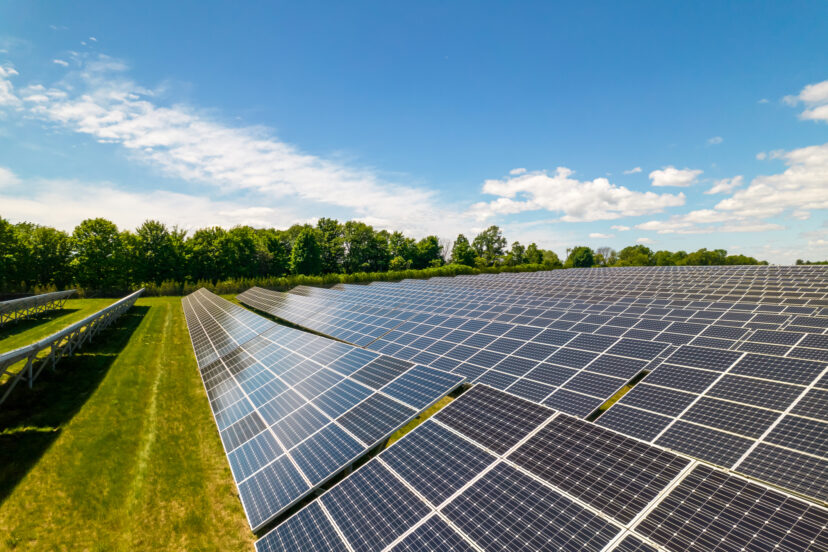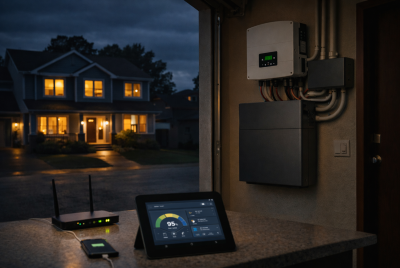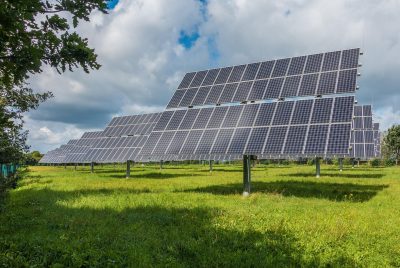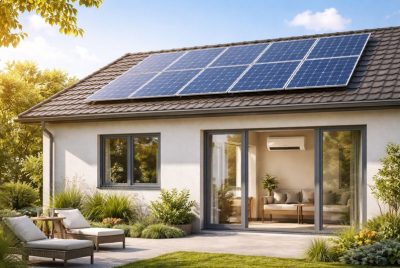How Solar Panels Work: A Beginner’s Guide
Ever wondered how those sleek solar panels on rooftops turn sunlight into electricity? It might seem like magic, but it’s actually a fascinating process based on science. If you’re new to solar energy and want a clear, easy-to-understand explanation, you’re in the right place. This guide will walk you through everything you need to know about how solar panels work in the simplest way possible.
What Are Solar Panels?
Solar panels are like giant sun catchers that absorb sunlight and turn it into usable electricity. They are made up of photovoltaic (PV) cells, which do the heavy lifting of converting sunlight into energy. Once installed, solar panels can generate electricity for decades, helping you save money on your power bills. The best part? They rely on a completely free and renewable energy source—the sun.
How Do Solar Panels Work?
Solar panels work by capturing sunlight and converting it into electricity through the photovoltaic effect. When sunlight hits the panels, it excites electrons inside, generating an electrical current. However, this electricity is in the form of direct current (DC), which isn’t compatible with most household appliances. That’s where an inverter comes in, converting the DC power into alternating current (AC) electricity, which your home can use.
The Role of Photovoltaic (PV) Cells
Photovoltaic cells are the heart of a solar panel. These tiny but powerful cells are made of silicon, a material that can absorb sunlight and generate electricity. Think of each PV cell as a mini power generator working together with thousands of others in a single panel. The more PV cells in a panel, the more electricity it can produce.
What Happens When Sunlight Hits a Solar Panel?
When sunlight reaches the surface of a solar panel, it sets off a chain reaction. The photons in sunlight knock electrons loose from the silicon cells, creating an electric current. This current flows through a network of circuits inside the panel, producing direct current (DC) electricity. Since homes typically use alternating current (AC) power, an inverter is needed to make the electricity usable.
How the Inverter Converts Energy
A solar inverter is like a translator for your solar power system. It takes the direct current (DC) electricity generated by the solar panels and converts it into alternating current (AC) electricity. This process is crucial because AC electricity is what powers your home’s lights, appliances, and electronics. Without an inverter, your solar panels wouldn’t be able to supply energy to your house.
How Solar Energy is Used in Your Home
Once the inverter converts the electricity to AC power, it flows through your home’s electrical panel, just like the electricity you get from the grid. Your appliances, lights, and even electric vehicles can run on solar energy without any special modifications. If your solar panels generate more electricity than you need, the extra power can either be stored in a battery or sent back to the grid.
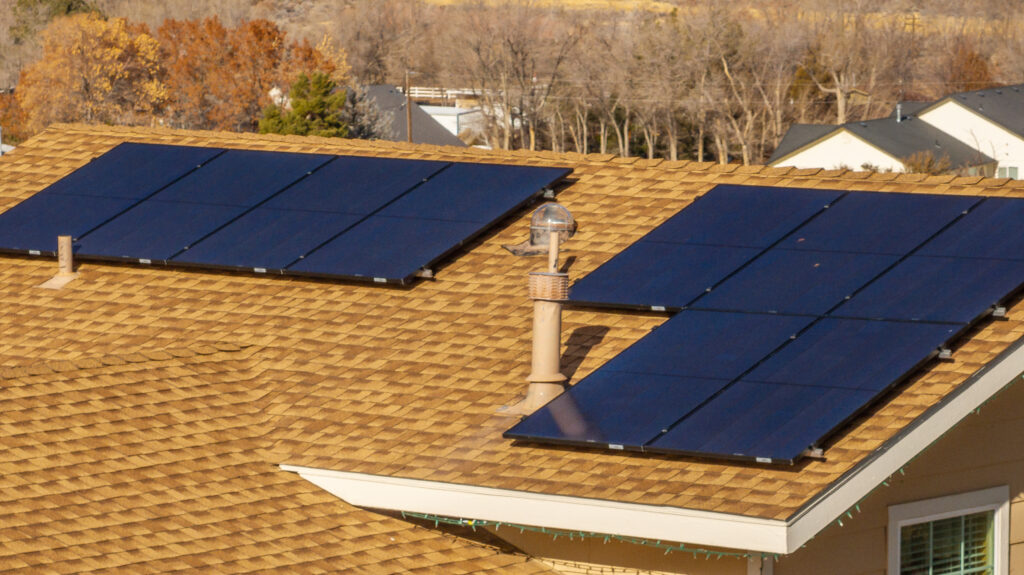
What Happens to Extra Energy?
On bright, sunny days, your solar panels may produce more electricity than you use. This excess energy doesn’t go to waste. If you have a battery storage system, the extra power is stored for later use, like at night when your panels aren’t generating electricity. If you don’t have a battery, the excess energy flows back into the electrical grid. In many places, homeowners receive credits on their electricity bills for sending energy back to the grid, a system known as net metering.
Do Solar Panels Work at Night?
Solar panels don’t generate electricity at night because they rely on sunlight. However, this doesn’t mean your home will be left without power. If you have a solar battery, you can use stored energy after the sun goes down. If you don’t have a battery, your home will automatically draw power from the grid, just like it would if you didn’t have solar panels.
Do Solar Panels Work on Cloudy Days?
Even on cloudy or rainy days, solar panels continue to generate electricity. They may not work at full capacity, but they can still produce a decent amount of energy. Just like you can still get a sunburn on an overcast day, solar panels can absorb sunlight even when the sky isn’t completely clear. Efficiency drops in these conditions, but your panels won’t stop working entirely.
Types of Solar Panels
Solar panels come in different types, each with its own advantages. Monocrystalline panels are the most efficient and have a sleek black look, but they can be expensive. Polycrystalline panels are slightly less efficient but more budget-friendly, making them a popular choice for homeowners. Thin-film solar panels are lightweight and flexible, but they don’t produce as much power as the other two types. The right choice depends on your energy needs and budget.
How Long Do Solar Panels Last?
Solar panels are designed to last for decades. Most have a lifespan of 25 to 30 years, but they don’t stop working after that—they just become slightly less efficient. Many manufacturers offer warranties that guarantee at least 80% efficiency even after 25 years. This means that investing in solar panels is a long-term commitment that pays off over time.
How Efficient Are Solar Panels?
Solar panel efficiency refers to how much of the sunlight they absorb is converted into electricity. Most panels today operate at an efficiency level of 15-22%. While that might not sound like a lot, it’s enough to power an entire home. Even with moderate efficiency, solar panels can significantly reduce electricity bills and reliance on the grid.
What Affects Solar Panel Efficiency?
Several factors influence how well solar panels perform. The amount of direct sunlight they receive plays the biggest role, as more sunlight means more energy production. The angle and direction of the panels also matter—ideally, they should be positioned to capture the most sunlight throughout the day. Dirt, dust, and debris can block sunlight, so regular cleaning helps maintain efficiency. Temperature also plays a role; while solar panels work in hot weather, extreme heat can reduce their efficiency slightly.
Are Solar Panels Worth It?
Solar panels are a great investment for many homeowners. They reduce electricity bills, provide energy independence, and help lower carbon emissions. While the upfront cost can be high, government incentives and tax credits can make solar more affordable. Many homeowners find that they break even within a few years and then enjoy decades of free electricity.
How Much Do Solar Panels Cost?
The cost of solar panels depends on system size, location, and available incentives. On average, a full residential solar system can cost between $10,000 and $30,000 before incentives. However, tax credits and financing options can significantly lower the upfront expense. Some homeowners choose to lease solar panels instead of buying them outright, making solar energy accessible without the initial investment.
Can You Install Solar Panels Yourself?
While DIY solar panel installation is possible, it’s not recommended unless you have electrical experience. Professional installers ensure that everything is set up safely and correctly. They also help with paperwork for incentives and grid connections. Improper installation can reduce efficiency and even void warranties, so hiring an expert is often the better choice.
How to Maintain Solar Panels?
Solar panels require very little maintenance. Since they don’t have moving parts, there’s not much that can break. The most important thing is keeping them clean—dirt, leaves, and bird droppings can block sunlight and reduce efficiency. In areas with heavy snowfall, brushing off snow can help maintain energy production. Routine inspections every few years ensure the system is running optimally.
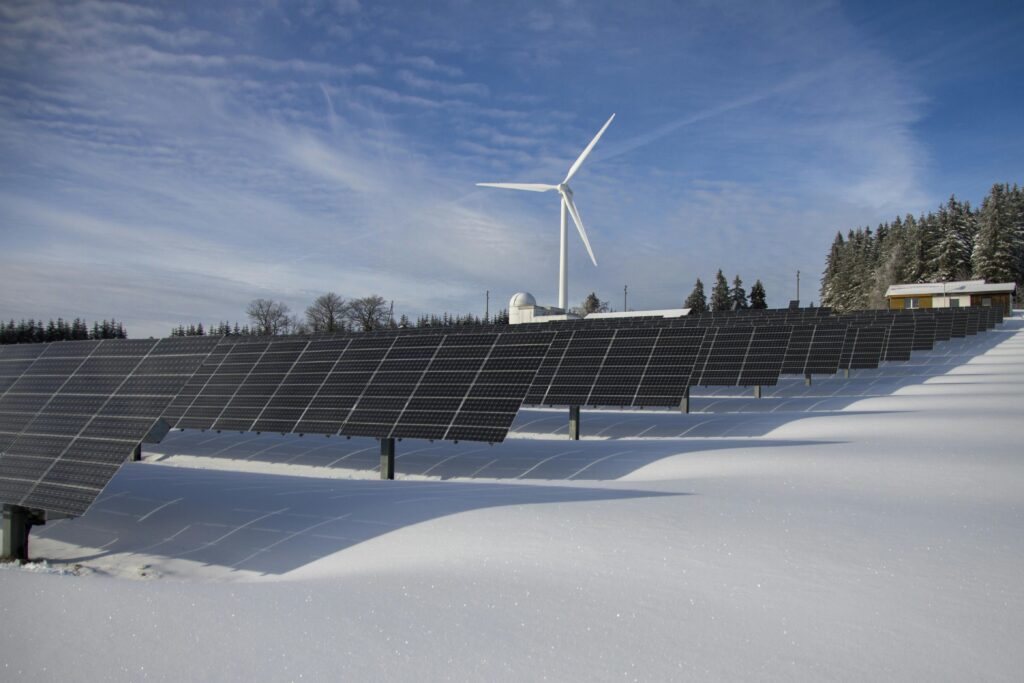
Do Solar Panels Work in the Winter?
Cold weather doesn’t stop solar panels from working. In fact, they often perform better in cooler temperatures than in extreme heat. The only issue in winter is snow, which can temporarily cover the panels and block sunlight. Most panels are designed so that snow slides off easily, and a little sunlight is usually enough to melt it away.
Enhancing Solar Panel Efficiency: Key Scientific Insights
Scientific research has provided valuable insights into the factors influencing solar panel efficiency and methods to enhance performance. A comprehensive analysis published in PMC examined how meteorological conditions such as solar intensity, temperature, humidity, and wind speed affect solar panel output. The study found that higher solar intensity and wind speed improve efficiency, whereas increased temperature and humidity tend to lower it. These findings emphasize the importance of optimal panel placement and environmental considerations for maximizing energy generation.
In addition, a review on solar panel efficiency enhancement published in Frontiers in Energy Research explored various cooling techniques and the integration of thermoelectric generators (TEGs) to mitigate heat-related efficiency loss. The research suggests that advanced heat dissipation methods significantly improve solar panel performance, particularly in hot climates where overheating reduces energy conversion rates.
These studies highlight the importance of both environmental factors and technological advancements in improving solar energy systems, offering practical solutions for maximizing efficiency.
Enhancing Solar Panel Efficiency: Recommended Products
Improving the efficiency of your solar energy system can be achieved with the right products. Here are some top-rated items available on Amazon that can help you maximize your solar panel performance:
1. 220W Solar Panel with 27% High Efficiency Perovskite Technology
This advanced solar panel utilizes perovskite technology to achieve a remarkable 27% efficiency rate. It’s designed for various applications, including caravans and off-grid setups, providing reliable power in diverse conditions. Its high efficiency ensures optimal energy generation even in limited spaces.
2. EF ECOFLOW 45W Portable Solar Panel
Ideal for those seeking portability without compromising efficiency, the EF ECOFLOW 45W Portable Solar Panel offers a 25% high conversion rate. It’s lightweight and compact, making it perfect for outdoor activities like camping or emergency preparedness. Its durable design ensures long-lasting performance across various environments.
3. 200 Watt Solar Panel with 24% High-Efficiency Monocrystalline PV Cells
This 200W solar panel features monocrystalline photovoltaic cells with a 24% efficiency rate. It’s equipped with half-cut technology to enhance performance and is suitable for a range of applications, from residential to commercial use. Its robust construction ensures durability and sustained energy production.
4. 120W High Efficiency Monocrystalline Portable Solar Panel
Combining portability with high efficiency, this 120W solar panel is designed with monocrystalline cells and adjustable kickstands for optimal sun exposure. It’s ideal for outdoor activities and emergency situations, providing a reliable power source when and where you need it. Its foldable design allows for easy transportation and storage.
Investing in these products can significantly enhance your solar energy system’s efficiency, ensuring you get the most out of your renewable energy setup.
FAQs About How Solar Panels Work
Can solar panels power my entire house?
Yes, as long as the system is properly sized to meet your home’s energy needs.
How do solar panels save money?
They reduce electricity bills, qualify for tax incentives, and may allow you to earn credits through net metering.
Do solar panels need a lot of maintenance?
Not at all. Occasional cleaning and routine inspections are usually enough to keep them working efficiently.
Will solar panels work during a power outage?
Only if you have battery storage. Otherwise, grid-tied systems shut down during outages for safety reasons.
How long does it take to break even on solar panel costs?
Most homeowners break even within 5 to 10 years, depending on energy savings and available incentives.
Now that you know how solar panels work, are you ready to switch to solar energy?
